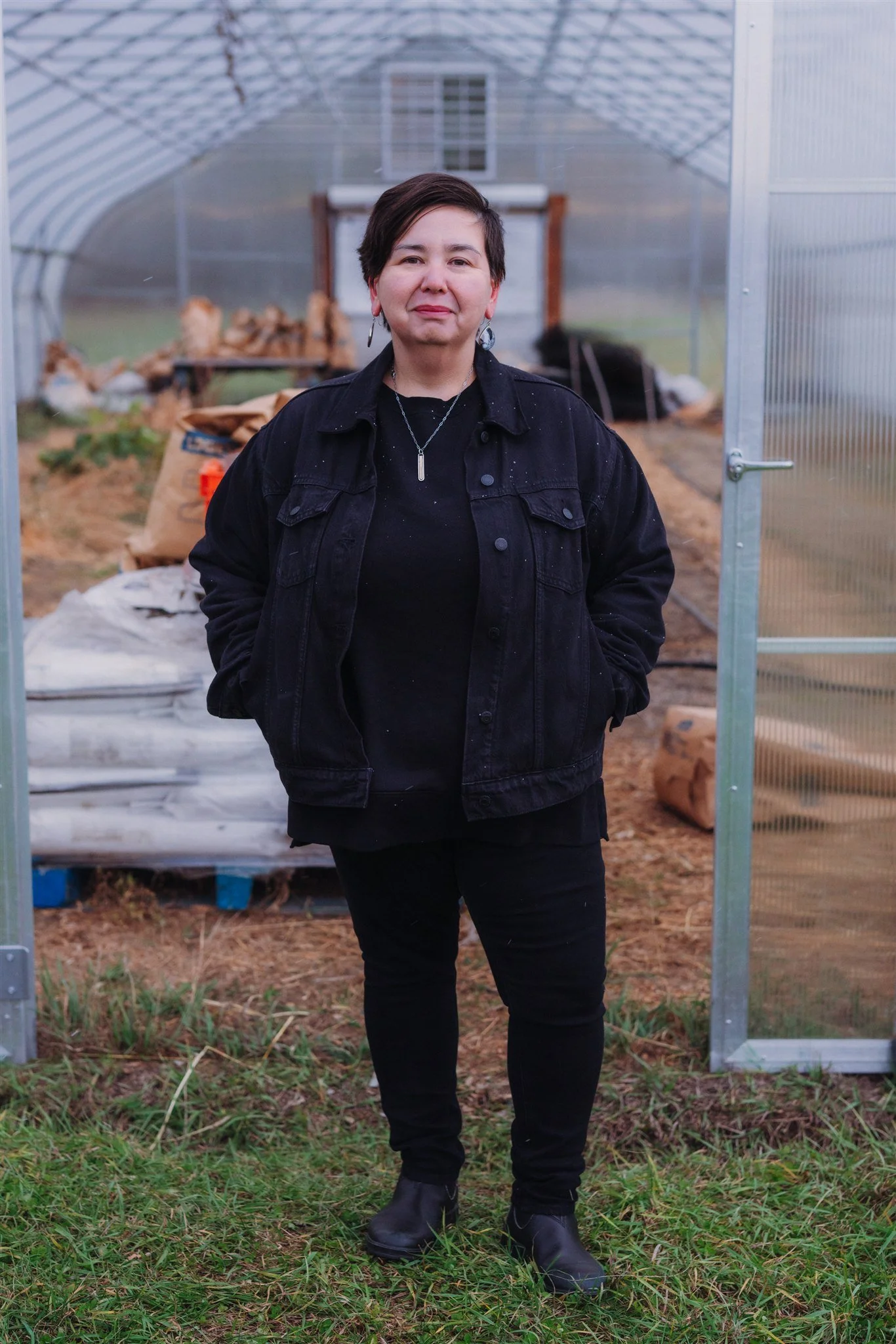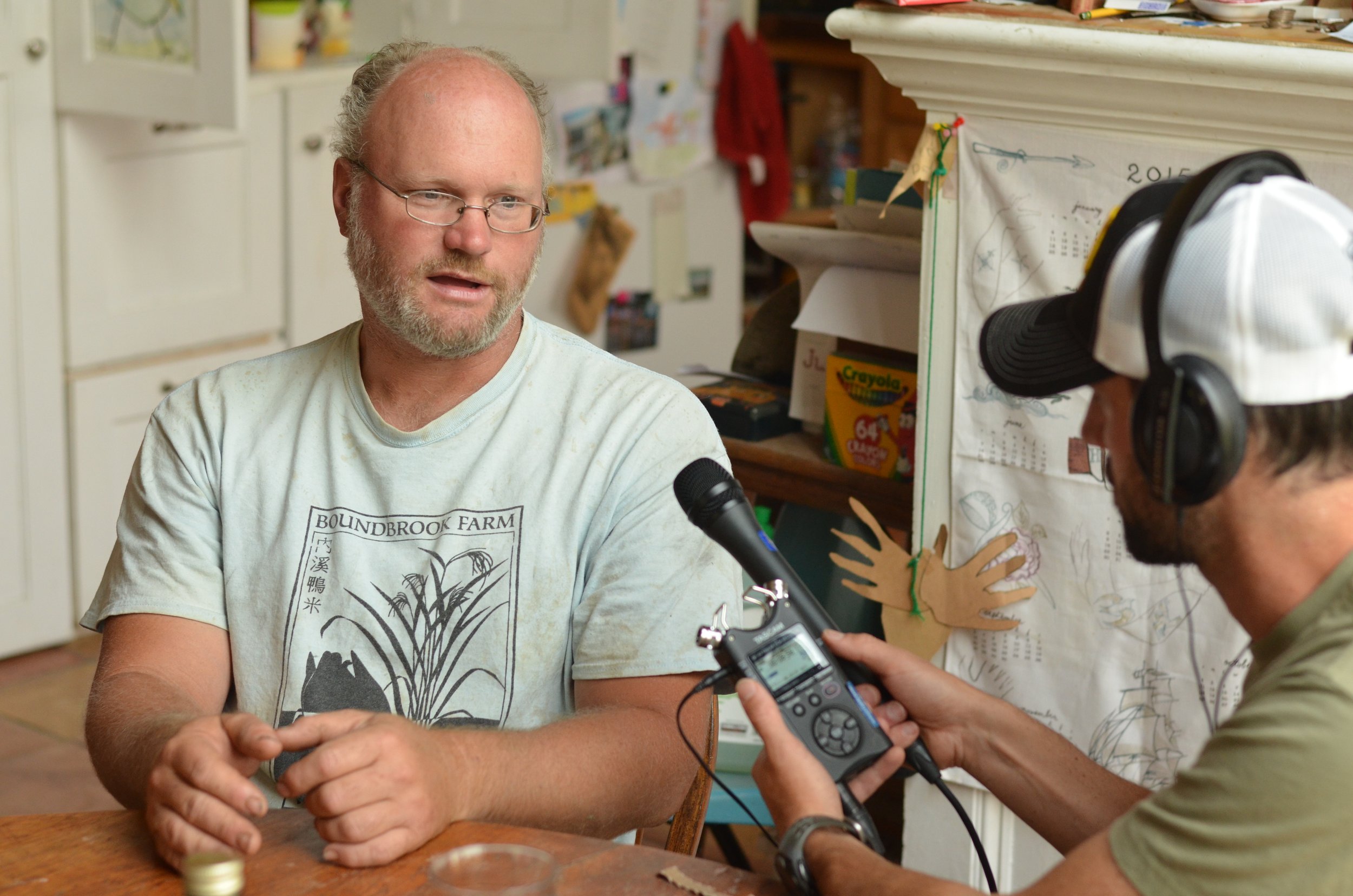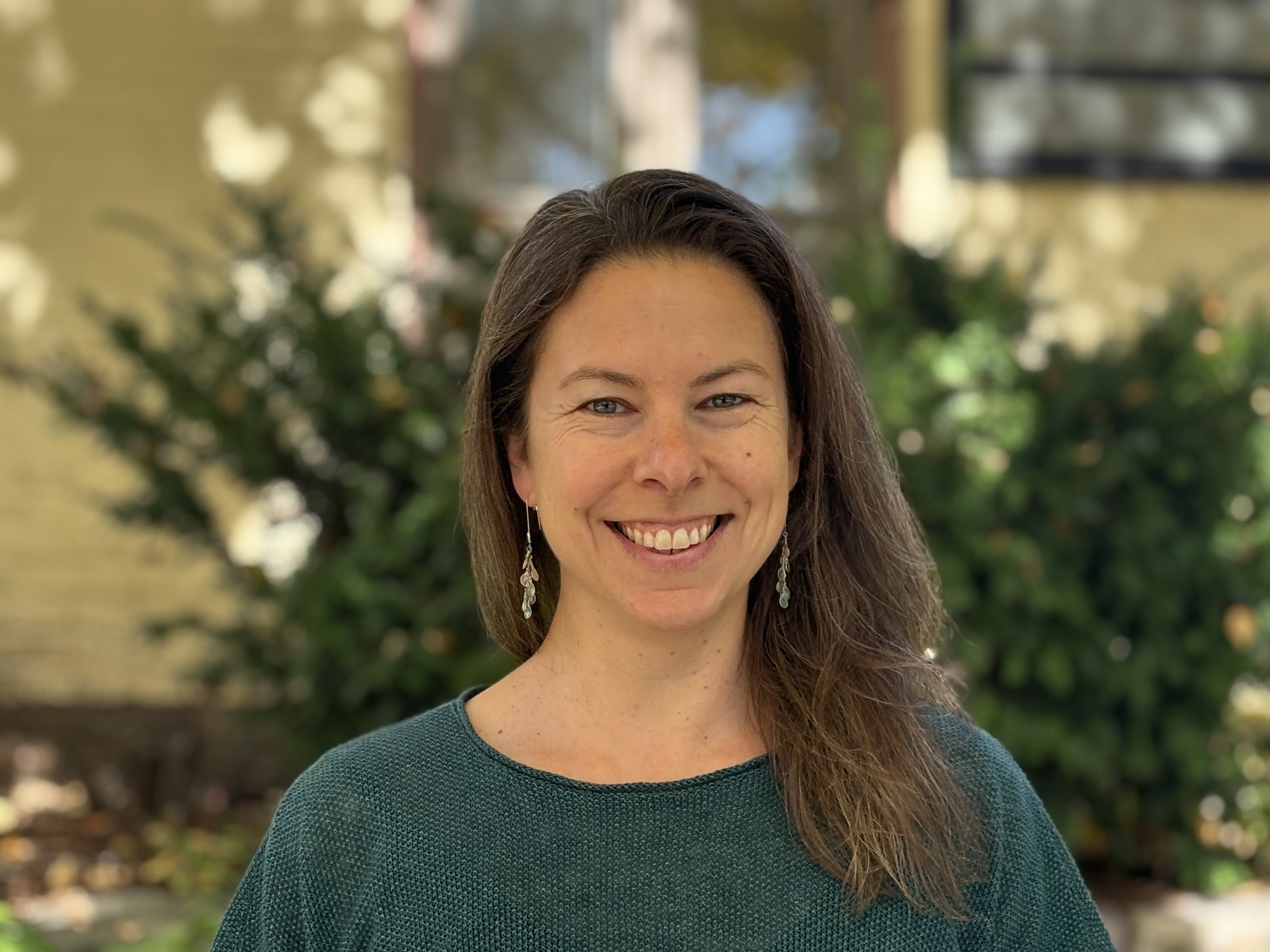Spend a year learning with the people and places that matter most to you.
What questions and concerns do you have for your community? Your curiosity leads to change.
The Vermont Community Fellows Program (VCFP) is for Vermont residents 18+ interested in engaging with the places, people and groups that matter to them. This yearlong process offers practical skills, mentorship, stipends, and, above all, time in a supportive environment to explore the complexities around an issue affecting their community.
Apply now!
If you would like to download a .docx copy of the application click here.
Have questions? Email us!
The deadline to apply is December 14th, 2025
This program is made possible thanks to Congressionally Directed Spending
secured by Senator Bernie Sanders through the National Historical Publications and Records Commission.
Who can be a Community Fellow?
Community Fellows are Vermont residents ages 18+ interested in undertaking collaborative field research to address needs shared by the people and places that matter most to them. We define community as any self-identified group of people that feels a strong connection to one another. Such connections can be based on shared identity, geography, occupation and/or interests. They can be long-standing or recently formed. This program is building capacity for action-oriented field research happening within Vermont communities.
Successful applications will demonstrate the applicant's capacity to engage deeply with a community of which they are a part, and collaboratively explore a specific topic or issue over a 12-18 month period. Applicants should show an openness to having their assumptions challenged and perspectives evolve over the course of this process.
To help make participation possible, Fellows will receive a stipend* dispersed in monthly installments, contingent on attendance at meetings and workshops and demonstrated progress towards Program goals. Fellows may be supported in applying for additional funds from outside sources to support their projects as well.
*Applications from individuals currently enrolled in a credit-bearing educational program (high school, college, or graduate school) will be considered “student” applications. Student Fellows will receive a smaller stipend from VCFP.
How does the VT Community Fellows Program work?
A cohort of 8-10 participants will apply collaborative ethnographic methods and practices learned in workshops to engage in a process of inquiry grounded in their own community. They will seek out and document diverse viewpoints and examine past and present efforts to address issues of local concern. Fellows will share what they’ve learned with their community, co-create a plan to envision and enact change, and work together to realize it.
What commitments are required of Fellows?
The Vermont Community Fellows Program requires a minimum time commitment of approximately 20 hours/month, including attendance at 11 meetings and workshops (in-person and virtual) between February 2026 - March 2027. If Fellows desire more time to develop and complete their project, facilitators can offer up to 6 months of additional mentorship and support (i.e. 18 months total program participation).
The program includes four elements:
Workshops & Meetings: Fellows attend a total of 11 Workshops (in-person) and Zoom meetings (virtual gatherings to stay connected and receive guidance and inspiration) between February 2026 and March 2027 (see dates below), plus engage in one-on-one mentoring and peer support throughout.
Research & Fieldwork: Throughout the program Fellows will use techniques learned in workshops to identify a research focus and engage in ethnographic fieldwork. Working in a supportive environment they will explore the complexities around an issue affecting their community. The time commitment required for fieldwork will vary with each project. Fellows can anticipate 15+ hours each month.
Creating & Carrying out an Action Plan: After several months of exploratory fieldwork, research, and community feedback, Fellows will co-create a plan with their community to envision and enact change, and then work together to realize it.
Public Exhibit & Presentation: Program staff will coordinate a final exhibit, and Fellows will participate in a public showcase sharing about their 12-18 month process of collaborative research with their communities.
What are the program dates?
While the research and action project you will develop as a Vermont Community Fellow is uniquely your own, the group learning experience offered through meeting and engaging with a diverse cohort of other Fellows from around the state is central to this Program. Attendance at Workshops (in-person) and Zoom meetings (virtual gatherings to stay connected and receive guidance and inspiration) on the following dates are required to complete the Program:
Nov. 3 - Dec. 14, 2025 - Applications accepted
Friday, Jan. 23, 2026 - Accepted fellows notified
Saturday, Feb. 7, 2026 - Workshop #1, 10am - 3pm / Projects begin
* Workshop #1 location in the Montpelier area; reimbursement for travel to workshops availableSaturday, Feb. 28, 2026 - Workshop #2, 10am - 3pm
* future workshop locations TBD based on program participantsSaturday, March 28, 2026 - Workshop #3, 10am - 3pm
Saturday, April 25, 2026 - Workshop #4, 10am - 3pm
Wednesday, May 27, 2026 - Zoom meeting, 6:30 - 8pm
Saturday, June 6, 2026 - Workshop #5, 10am - 2pm
Wednesday, July 15, 2026 - Zoom meeting, 6:30 - 8pm
August, 2026 - No meetings or workshops; Fellows work on Action Plans
Saturday, September 26, 2026 - Workshop #6, 10am - 2pm
Thursday, October 22, 2026 - Zoom meeting, 6:30 - 8pm
Wednesday, December 2, 2026 - Zoom meeting, 6:30 - 8pm
Saturday, March 20, 2027 - In-person gathering: Celebration! and exhibit preview.
Spring, 2027 - Opening of public exhibition showcasing projects from all Fellows
.
What will Fellows learn?
Community-based research methods
Audio and video field recording techniques
Use and creation of archival collections
Ethics of community organizing and work
Organizing and facilitating informal and formal community discussions
Frequently
Asked
Questions
-
For the Vermont Community Fellows Program we define community as any self-identified group of people that feels a strong connection to one another. These connections can be long-standing or recently formed. Examples include:
Communities defined by geography such as your town or neighborhood.
Groups that gather regularly for a common purpose or interest such as sports teams, book clubs, alcoholics anonymous, theater troupes, etc.
Groups of people living in Vermont who share a common identity, for example: ethnicity/race, culture, religion/spirituality, gender, sexuality, or occupation.
Professional or educational communities such as groups of colleagues, professional associations, schools, specific college majors, or alumni groups.
-
Yes. The Community Fellows Program is an opportunity to explore a community which you already belong to, but we recognize that there are many ways to be part of a community.
For example, the town you live in is a community that you are part of. If you grew up in Cornwall and now live in Middlebury, but still feel strongly connected to Cornwall, that would be OK. If you are a second generation Tibetan-American and are interested in doing a project with first-generation Tibetan-Americans and members of that group support your project, it would also be a good fit for VCFP. If you would like to speak to a VCFP facilitator about the community you’d like to work with and your role within it, please feel free to reach out to us at communityfellows@vtfolklife.org.
-
When you apply, you will be asked to share what questions and concerns you have for your community that you are curious to address as a Community Fellow.
These questions can be anything you feel are important. There is no right question to ask. As a member of the community you wish to learn from and work with, we believe you know best what social issues and community processes are worthy of exploration and attention.
Your question(s) will become the basis for the project you will work on throughout the 12-18 months of the program. You might have an idea of a type of project that interests you (an exhibit, a community gathering, a workshop, etc), but the actual shape of that project will depend on your fieldwork–the time you spend listening and observing in your community–and the wants and needs your community shares with you. We ask that Fellows be open to their initial ideas changing throughout the process as their understanding of their community’s needs evolves.
-
Community Projects arise from a question or social issue/concern and are shaped by fellows along with community members. Fellows are not expected to know exactly what their project will look like when they apply, in fact we would rather have participants have questions that they are curious and concerned about, rather than the potential resolutions to a specific issue.
What you learn through this process, combined with the skills and interests you bring to it, will inform the shape that your final project takes. To apply, you only need to have a question, and the interest to pursue it.
-
Projects must focus on the experiences of people living within the geographic boundaries of Vermont, but it doesn’t need to be about Vermont as a place.
-
Fellows will find it useful to be comfortable with some basic computer skills, including familiarity with:
Word processing and spreadsheet software such as Microsoft Office or Google Docs
Using email, the internet, and uploading and downloading files
Staying in touch with a group on a messaging app such as WhatsApp
Community Fellows will also spend a considerable amount of time in conversation with community members, and so should feel comfortable (or be interested in becoming comfortable) with talking to a wide range of people.
Other than these, just curiosity, openness and a willingness to consider new points of view.
-
Fellows should have:
Regular access to a computer and an internet connection fast enough for video conferencing.
A camera or cell phone capable of taking still photos and video.
Vermont Folklife is able to provide access to audio recording equipment, and possibly also to a camera for high quality still photography.
-
The VT Community Fellows Program is a part-time project that we anticipate participants carrying out alongside other educational or professional work. You can anticipate a minimum time commitment of approximately 20 hours/month, including required attendance at 11 meetings and workshops (in-person and virtual) between February 2026 - March 2027. Please review the program timeline above to verify your availability before submitting an application.
If Fellows desire more time to develop and complete their project, facilitators can offer up to 6 months of additional mentorship and support (i.e. 18 months total program participation).
-
Fellows are expected to attend all in-person training workshops and virtual meetings (exceptions can be made for hardship and illness.) Please note the dates of the workshops and meetings prior to submitting an application to be sure they fit into your schedule.
The location of the workshops is TBD. If Fellows need mileage reimbursement in order to attend the workshops, they are encouraged to reach out to program facilitators at the beginning of the program.
-
The workshop locations are TBD. We anticipate working with a cohort of Fellows from across the state, and will do our best to pick a location (or multiple locations) that is as central as possible to all participants. At the moment, we're looking at Barre, Montpelier, and/or White River Junction as possibilities.
-
Yes. Participation is limited to residents of the state of Vermont. This includes students currently enrolled in Vermont-based schools, colleges, and universities who live in Vermont while school is in session.
-
Yes. Participants must be at least 18 years old at the time they submit their application, but there is no age cap, and we welcome applications from folks in all stages and walks of life.
Applications from individuals currently enrolled in a credit-bearing educational program (highschool, college, or graduate school) will be considered “student” applications. Student fellows will receive a smaller stipend from VCFP.
-
All Fellows admitted to this program are eligible to receive a stipend. The stipend will not fully compensate Fellows for the expected time commitment, but will hopefully help make participation possible. Student fellows may receive a stipend of $2,000, which we anticipate being supplemented through funds from educational and other philanthropic institutions. All other fellows may receive a stipend of $5000.
Other funding to help cover mileage to and from workshops, and to help cover some project-related costs is also available.
If an applicant doesn’t need the stipend to participate they should indicate this on the application. This question has no bearing on the evaluation of an application; we ask so that we can determine how many Fellows our funds can support.
-
Whether or not a student can receive academic credit for participation in the Vermont Community Fellows Program would be determined by the educational institution you attend. We are happy to help facilitate Fellows receiving credit for participation, but it is the responsibility of the student to determine if this is possible and to work out all arrangements with their school. We do have program facilitators who are qualified to act as “instructor on record” in partnership with your educational institution. Please reach out to Kate Haughey if you have further questions about this (khaughey@vtfolklife.org).
-
Sure! You’d need to work with your employer to determine whether your time spent as a Fellow would be covered under your work hours, or whether you would be doing the work on your own time. If your time as a Fellow is to be covered under your work time, we can arrange for the stipend to be given to your employer, or split between your employer and you as an individual. If you intend to participate as a Fellow representing your organization, we will need your employer to sign a form that shows they are supportive of this arrangement.
-
Each Fellow will pursue their own project, but Fellows will provide peer support to one another.
-
The Vermont Folklife Archive is both a record of the work of the organization and a unique record of life in the state as it emerges over time. The most significant collection of its type in the state, the Vermont Folklife Archive is the repository for ethnographic and oral history research conducted by our staff, as well as materials donated to us by outside researchers, documentarians, and others.
The heart of the collection resides in approximately 7,000 audio recordings created from the late 1940s through the present that explore the unfolding culture of Vermont across the 20th and 21st centuries. In addition, the Archive holds hundreds of video recordings, thousands of photographs, and a wealth of manuscript and print materials.
The Vermont Folklife Archive is a resource for Vermont Community Fellows, one that can provide insight into ways in which Vermonters in the past addressed issues impacting their lives and communities. VT Folklife Archive staff will help identify resources in the archive that can inform your project. If nothing exists in our Archive related to your topic, your research may be the first contribution!
-
Of course! We encourage Fellows to use any resources they feel will be helpful.
-
Future years of this program beyond 2026 require additional funding, which at this time has not been secured. If you would like to be notified about future program updates please contact us at communityfellows@vtfolklife.org.








